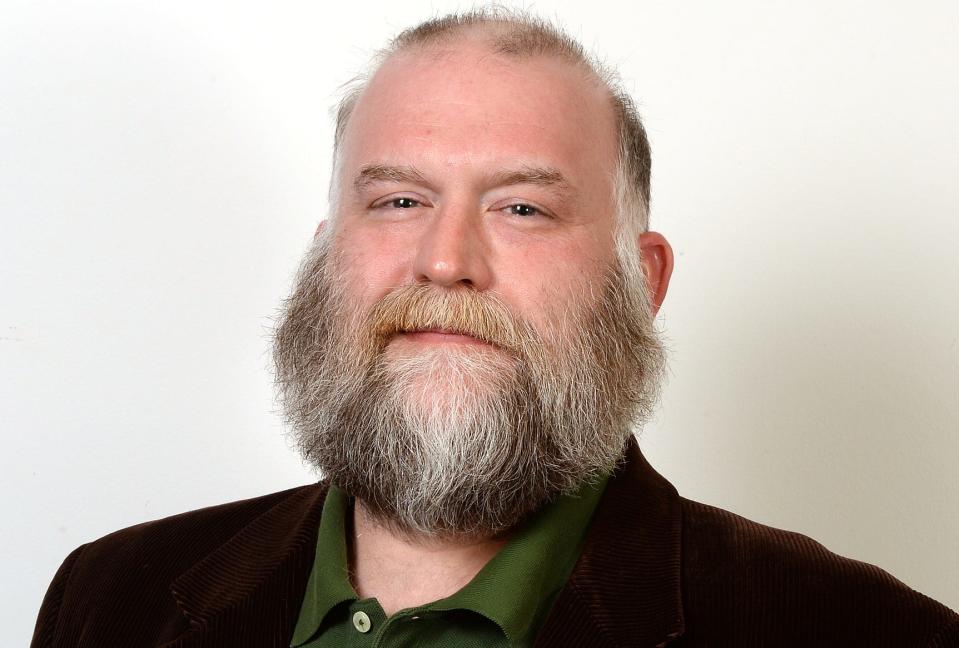David Murdock Column: On silence of all kinds (and bothersome noises)
Last week’s column was about “semi-solitude.” I hadn’t intended to write a follow-up to it, but, oh well, here we are. Something got on my mind last night and hasn’t left — something related to solitude: silence.
Rambling around the internet after supper, I read an article by the music and cultural critic Ted Gioia — a really sharp writer, by the way — titled “My Lifelong Quest for Silence.” The subtitle is “It may seem strange to hear it from a music writer, but I'm always looking for a quiet moment.”
It’s a nuanced examination of silence in the traditional sense. In other words, silence as an absence of sound. (The article is worth a read. Just Google “Ted Gioia silence” to find it.)
The article struck me so forcefully because of something that happened on the drive home from work. Since it was a nice day, I had the window down, enjoying the weather. A truck passed me on the left. Let’s just say it wasn’t equipped with the same engine it had on the showroom floor. It was so loud in such a register that I involuntarily turned my head away from it.

There are just some noises that get to me these days. Most noises of the modern world go right by me, more or less unnoticed. Some — like the distant hum of traffic on the interstate from my house — are even somewhat comforting. Others, however, pierce right to the center of my brain. Without thinking, I turn my head away from them.
And it’s not just auditory noise. There are lots of kinds of “noise” that aren’t sound-related. I think there’s visual noise, for example. These days, I really don’t like certain types of lights, especially those that have a strobe effect. Overhead fluorescent lighting is one.
I first noticed that strobe effect while I was driving, too. There’s a section of my drive to work that passes through trees. On clear days in the winter, when the leaves have fallen, the rising sun hits that patch of trees in such a way as to produce a strobe-like effect. Really annoying. The first time it happened, I turned my head away from it involuntarily. Now, I pivot the car’s sun visor to block it.
Frankly, my discomfort with auditory and visual noise is why I don’t like to go to movie theaters anymore. I cannot hear what the characters are saying over the background noise in the movie, and the films are so dark that I can’t quite see everything, either. It’s just not a fun experience anymore.
And I know that I’m not the only one. The internet brims with movie fans complaining about the exact same thing — especially the way that sound is recorded on film these days. I’ve heard more than one person fuss about fluorescent lighting, too.
And, I’m not the only one to use the word “noise” to mean something other than auditory noise. There are articles and books of all kinds that contain the words “noise,” “quiet” or “silence” used to refer to other types of experience than sound. “Noise,” for example, is often used to describe the unending, relentless rhythm of our 21st century lives.
Then, there is absence. Only a few times in my life have I experienced complete or near-complete absence of sound or light, and they were utterly disconcerting.
When I was touring a commercial cave once, the guide told us that she was going to turn off the lights so we could experience “the most complete darkness” we ever had. She warned us to balance ourselves. I felt that darkness, that’s about how creepy an experience it was. If I hadn’t balanced myself beforehand, per the guide’s warning, I might even have stumbled.
My first experience with an absence of sound happened when Mom and Dad took me to South Alabama to visit Mom’s brothers and sisters when I was a kid. I’d gone to visit at least once before, maybe even twice, but I was too young to remember it. There are photos to prove at least one trip, though, one my brother remembers and was surprised I didn’t.
On the trip I’m speaking of, though, we stayed with one of my aunts, who lived on a farm way out in the country. So far out, in fact, that I couldn’t go to sleep because of … and this experience was also disconcerting … it was so quiet. There was absolutely no artificial background noise of any kind — no traffic hum, no distant sirens. Nothing but nature.
And I grew up in Attalla! It’s not like I grew up in New York City, with all the hustle and bustle of a big city. I felt that silence.
In a way, silence isn’t an absence of sound, as its dictionary definition indicates. I think that it exists on a continuum — “too much noise” on one end and “too little noise” at the other. It all depends, too, on what we define as “noise.”
It’s like I wrote about solitude last week, that solitude is not the same as loneliness. We choose solitude; loneliness is forced on us. Similarly, we choose silence; noise is forced on us.
David Murdock is an English instructor at Gadsden State Community College. He can be contacted at murdockcolumn@yahoo.com. The opinions reflected are his own.
This article originally appeared on The Gadsden Times: Columnist David Murdock contemplates silence

